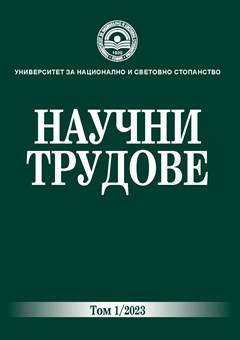A Comparative Analysis of Selected Monetary Policy Indicators in Northern Macedonia and Albania in the Last Decade
Автори: Enida Zhugri, Jonida Lamcja, Ada Aliaj, Ikbale Tota
Резюме
Abstract
This paper intends to explore and describe some of the main monetary policy indicators in the Albanian economy and Northern Macedonia. The countries under study have some general similarities as follows: both are countries with a transition economy operating in the open market economy for no more than 30 years; both countries have been part of communist regimes for a very long time; both of these countries are a potential candidate to be part of the European Union. The target exchange rate strategy is the monetary policy pursued by the Central Bank of Northern Macedonia in fixing the local currency exchange rate within the Euro to maintain a certain level or within a specific interval the exchange rate of that country. According to the economist, one of the most important reasons a country has financial stability is the efficiency of monetary policy instruments in the short and long run. In the international economic sphere, both countries under analysis are exposed to the risks of appreciation or devaluation of the exchange rate, trade barriers, and any other risk related to financial crises that may affect the region's countries.
JEL: E52

